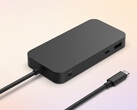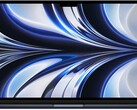Ever since Apple dominated the laptop chip market with the debut of its ARM-based M-series SoCs in 2020, PC enthusiasts have been eagerly awaiting a similar revolution for PC laptops. With the launch of Snapdragon's X Elite and X Plus powered laptops, it appears that a significant transformation in Windows laptops is now just around the corner.
In a recent briefing by Microsoft's executives, as reported by The Verge, the company dedicated an entire day to pitting its ARM-based Surface products against Apple's M3 MacBook Air (curr. $999 on Amazon). While initial results appear to be favorable for Microsoft, the situation is actually more nuanced.
Microsoft claims that its Surface offerings will outperform the MacBook Air by over 50 percent in sustained workloads. While this claim aligns with expectations from the X Plus and Elite benchmarks, several other factors are to be considered. The M3 features only 4 high-performance cores, whereas the Snapdragon X Plus has 6 and the X Elite has 8. Even the M3 Pro, which performs similarly to the X Elite, has 'only' 6 high-performance cores, 2 less than the X Elite. Additionally, in single-core performance, the M3 remains comfortably ahead, and Apple's upcoming M4-powered laptops will only widen this gap when they launch later this year. Furthermore, the passively-cooled MacBook Air is fanless, while the Surface products include a fan for active cooling and better sustained performance, as noted by Ars Technica.
Moreover, compatibility is going to be a huge concern for these new ARM-based Windows laptops. One of the primary reasons why Apple was able to pull off the transition from x86 to ARM so seamlessly, was because of its Rosetta 2 translation layer being sufficiently hassle-free and performant. Microsoft is attempting to do something similar with its Prism emulator, which the company claims is far better than its previous attempts and matches Rosetta 2 in terms of performance. If true, this could be a major boon for ARM-based PCs, as it would bridge the gap until developers finally start pushing out more native apps for Windows on ARM.
Regarding battery life, the ARM-based Surface devices perform admirably in these tests. Microsoft used a script to simulate web browsing, along with a video playback test. In both the tests, the ARM-based Surface beats the M3 MacBook Air by a comfortable margin and leaves the Intel-based Surface Laptop 5 in the dust. The results are as follows:
- Intel-based Surface Laptop 5: Web Browsing - 8 Hours 38 Minutes, Video Playback - 12 Hours 30 Minutes
- Surface CoPilot PC: Web Browsing - 16 Hours 56 Minutes, Video Playback : Over 20 Hours
- MacBook Air M3: Web Browsing - 15 Hours, 25 Minutes, Video Playback - 17 Hours 45 Minutes
These results are very impressive, but they represent controlled tests and may not fully reflect real-world usage. Nonetheless, the advancements in ARM-based Windows laptops are clearly very promising, suggesting a bright future for PC enthusiasts, who may now finally be able to taste the performance and efficiency benefits that MacBook aficionados have gotten used to over the past few years.






























![Lenovo ThinkPad T14s Gen 6 debuts as durable business laptop with Snapdragon X Elite (Image source: Lenovo and Qualcomm [edited])](fileadmin/_processed_/d/9/csm_Lenovo-ThinkPad-T14s-Gen-6-Snapdragon-X-Elite45_a5312a1cba.jpg)

